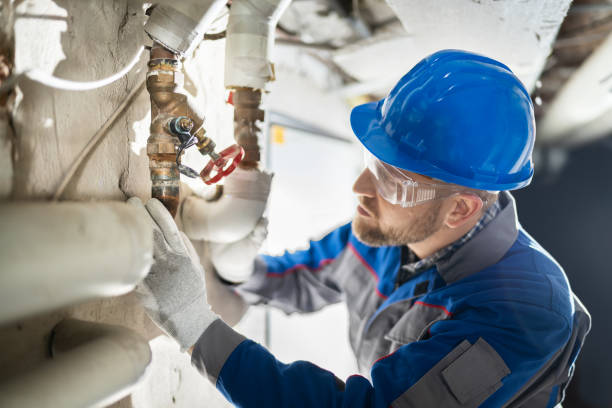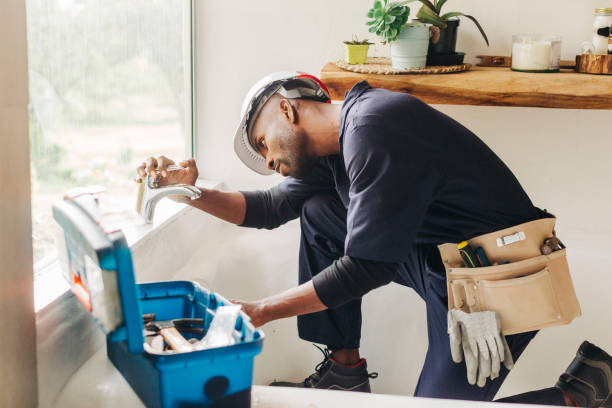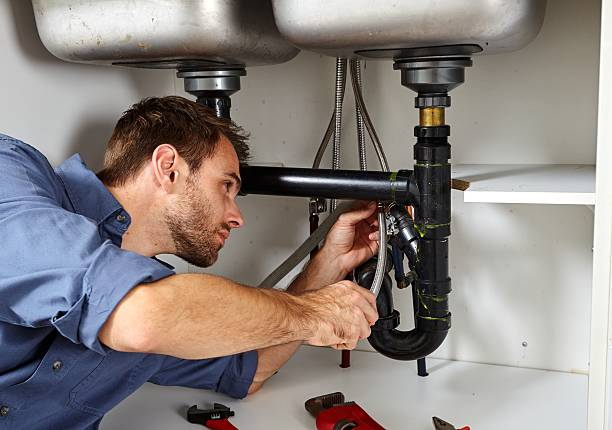How to be the best plumber?
Are you looking for a rewarding and financially stable career choice? Have you considered a career in plumbing? Plumbing may not be the first profession that comes to mind when thinking about job security and potential for growth, but the truth is that the plumbing industry offers diverse career opportunities and numerous benefits.

One of the top benefits of being a plumber is the high earning potential. Plumbers are in high demand, and as a result, they often earn competitive wages. Additionally, plumbers who work for themselves or own their own businesses have the potential to earn even more.
Another benefit of being a plumber is the opportunity for self-employment or business ownership. Plumbers who own their own businesses have the freedom to set their own hours, choose their own clients, and make their own decisions. This level of autonomy can be incredibly rewarding for those looking for a more independent work experience.
The plumbing industry is also a great option for those looking for job security and potential for growth. As long as there are buildings with plumbing, there will always be a need for plumbers. The industry is expected to grow in the coming years, with many retiring plumbers leaving behind openings for new professionals.
Continued education and training can also lead to career advancement and specialization. Plumbers who pursue additional training in areas such as green plumbing, which focuses on environmentally friendly practices, can set themselves apart from their competitors and increase their earning potential.
In conclusion, the benefits of being a plumber are numerous. From high earning potential to the opportunity for self-employment or business ownership, a career in plumbing can be a financially stable and rewarding choice. With job security and potential for growth, it’s no wonder that the plumbing industry is a popular option for those looking to start or advance their careers.
Education and Training
To become a professional and successful plumber, education and training are essential. Plumbing is a skilled trade that requires knowledge and expertise in various areas, such as installation, repair, and maintenance of plumbing systems.
Whether you’re just starting on your plumbing career or looking to advance your skills, investing in education and training can help you achieve your goals and increase your earning potential. In this article, we’ll explore how education and training can help you become the best plumber you can be.
Trade School or Apprenticeship?
When it comes to becoming a plumber, there are two main options: attending a trade school or entering an apprenticeship program. Both paths have their own unique advantages and disadvantages, and it’s important to understand what each offers in order to make an informed decision.
Trade School:
Attending a trade school is a formal education that typically lasts anywhere from six months to two years. Classes are often taught in a classroom setting, and upon completion, students can earn a certificate or diploma. One of the main advantages of attending a trade school is the speed at which students can enter the workforce – they can get started in their plumbing career relatively quickly.
Additionally, trade schools provide students with a strong foundational knowledge of plumbing systems and techniques, which can be tremendously helpful as they begin their careers.

However, trade schools can be costly, and they may not provide as comprehensive an education as an apprenticeship program. Additionally, graduates of trade schools may struggle to find work initially since they do not have practical, on-the-job experience.
Apprenticeship Program:
An apprenticeship program, on the other hand, is a combination of on-the-job training and classroom education that can take up to five years to complete. It typically involves working with a licensed plumber and receiving hands-on training in addition to taking classes.
One of the main advantages of an apprenticeship program is the practical experience that participants receive. Since they are working with licensed plumbers, they are learning from experienced professionals who can teach them the ins and outs of the trade. This experience can be invaluable in helping apprentices secure employment after completing the program.
However, apprenticeship programs can also be challenging to get into, particularly since they are highly competitive. Participants must typically complete an entry exam and may need to complete additional training to qualify. Additionally, since apprentices are often learning while on the job, it may take longer for them to earn a full salary.
Whether you choose a trade school or apprenticeship program ultimately depends on your needs and goals as a plumber. Those who value a strong foundational education and are willing to invest in their education may prefer trade school, while those who want practical experience may prefer an apprenticeship program. Ultimately, both paths can lead to a successful career in plumbing as long as you are willing to put in the time and effort required.
Potential Careers in the Field of Plumbing
Plumbing is a diverse field with many career paths available for those interested in pursuing it. There are several types of plumbers, including apprentice, journeyman, and master plumbers. Each level requires a different level of training and experience, so it’s essential to understand the differences before choosing a career path.
Apprentice plumbers receive on-the-job training while working with licensed plumbers. They typically assist with basic tasks such as cutting pipes and installing fixtures. However, as they gain more experience and knowledge, they may also perform more technical tasks. Apprentice plumbers are often in-training for 4-5 years and are required to attend classroom instruction as part of the apprenticeship program.
Journeyman plumbers have completed their apprenticeship and have passed the licensing exam. They have more experience and can work independently, although they still require some supervision. Journeyman plumbers typically have a broad knowledge of plumbing systems and are capable of handling more advanced tasks.
Master plumbers have additional certification, indicating that they have mastered the trade. They often have years of experience, including supervising and training other plumbers. There is usually a master plumber on staff in a plumbing company. Master plumbers may also own their plumbing businesses.
There are many potential career paths available in the field of plumbing. One option is becoming a plumbing contractor, which involves running a business that specializes in plumbing services. This requires a significant amount of experience, knowledge, and business savvy.
Working in new construction is also an option. Plumbers in this career path install the plumbing systems in new buildings. They work closely with construction teams and other contractors to ensure that the plumbing system is installed correctly and meets all requirements.

Another career path is specializing in repairs and maintenance. Plumbers in this field work with customers to diagnose and repair plumbing issues, such as leaks or blockages. They may also perform routine maintenance on plumbing systems to prevent problems from occurring.
Becoming an inspector is also an option. Plumbing inspectors are responsible for ensuring that plumbing systems adhere to building codes and are safe for use. They perform inspections on new and existing homes and businesses to ensure that the plumbing meets all requirements.
In conclusion, the field of plumbing offers diverse career opportunities for those interested in pursuing it. Apprenticeship programs are the most traditional way of becoming a plumber, but additional certifications and specialized training can provide new opportunities for growth. Plumbers can become contractors, specialize in construction, repairs, or work as an inspector.
Meet Lila Robinson, an expert in the world of plumbing with a talent for delivering valuable insights and captivating articles on an array of plumbing topics. With years of experience handling complicated plumbing issues, Lila has become a go-to resource for homeowners and businesses alike.
Packing vast knowledge in plumbing tools and science, Lila creates a sense of community on her blog and social media accounts, engaging with readers from all walks of life. Her writing style is authentic, unique, and engaging, and she has an exceptional ability to break complex concepts into understandable ideas.
If you have encountered a plumbing issue, chances are Lila Robinson has conquered it. Her articles uncover the underlying problems behind some of the most unexpected plumbing problems, from tankless water heater error codes to drain snakes in vents.
Whether you’re a beginner or an experienced plumber, Lila Robinson’s blog has something for you. Follow her social media accounts to keep up-to-date with the latest posts and join the conversation.